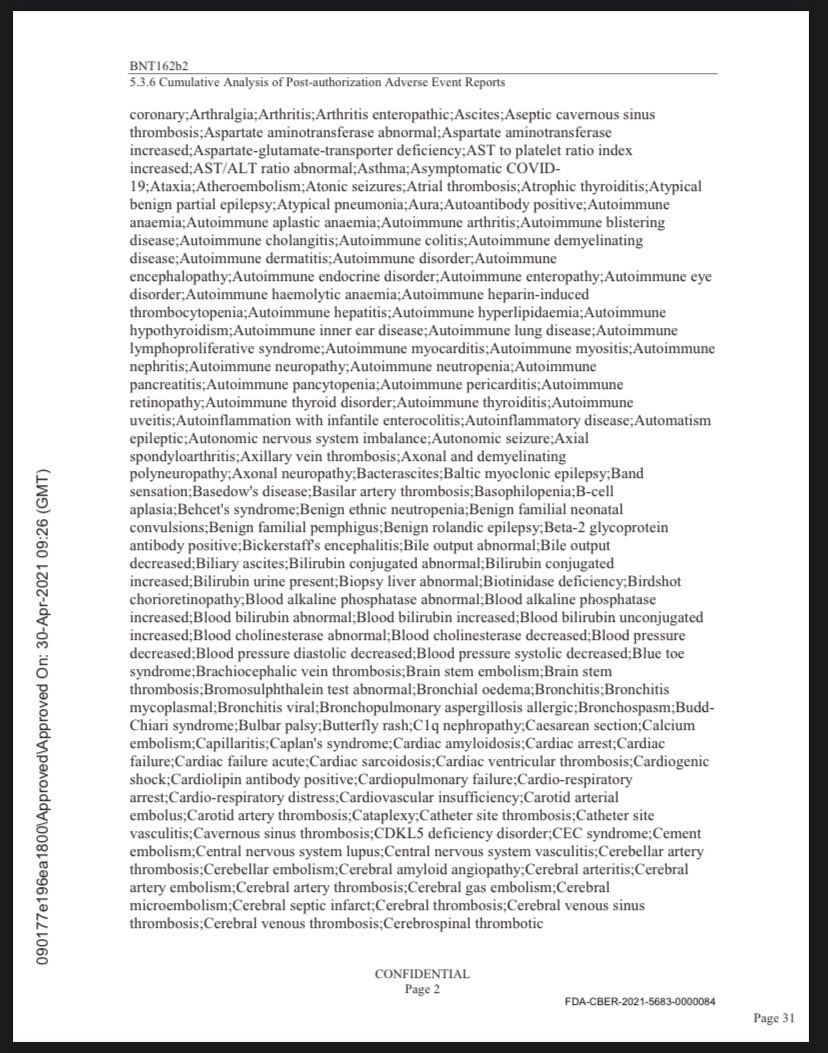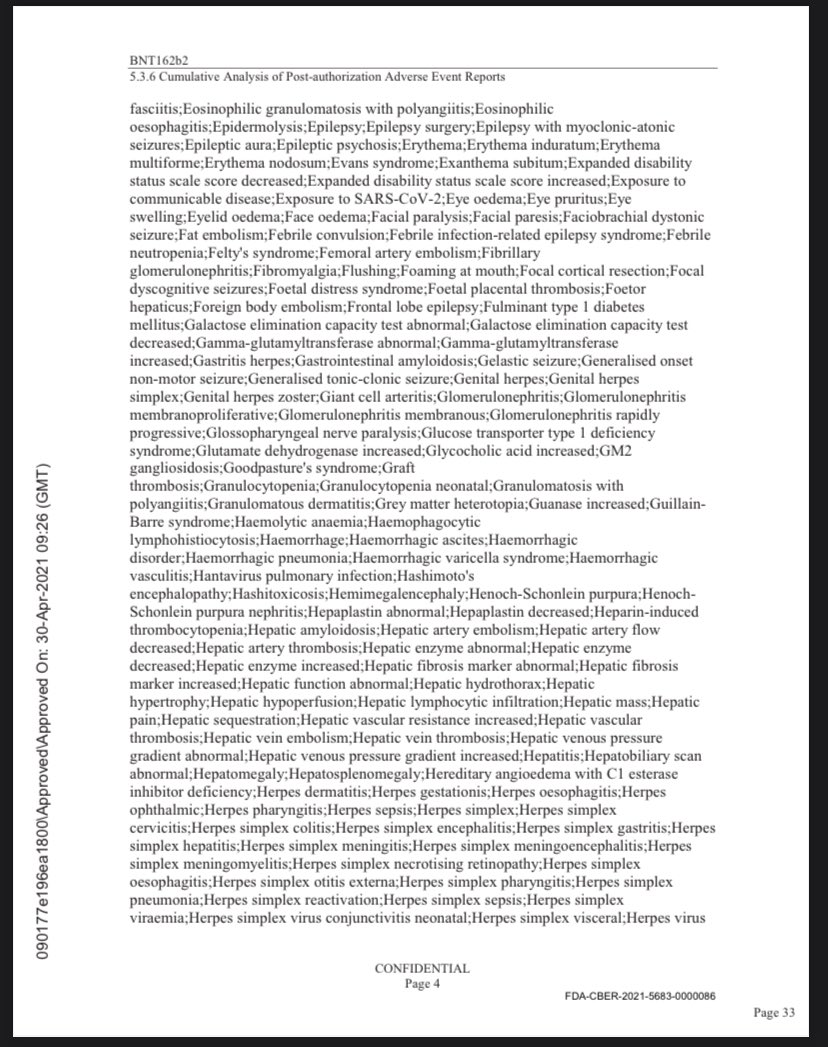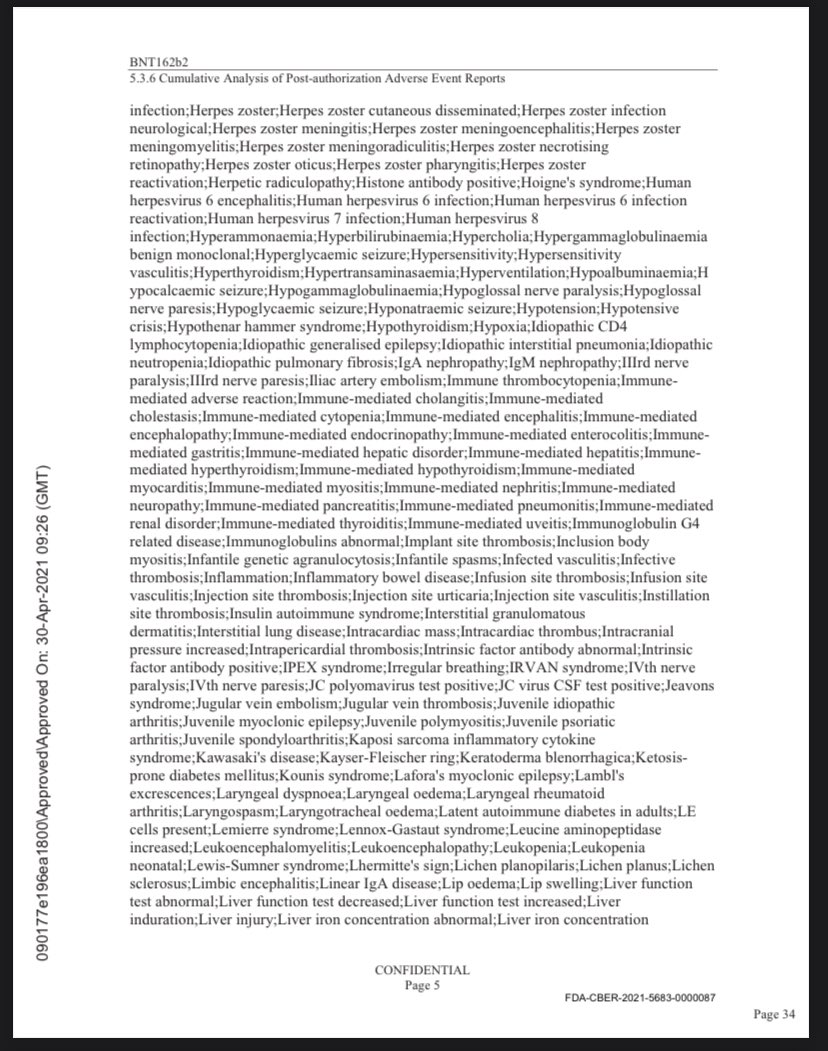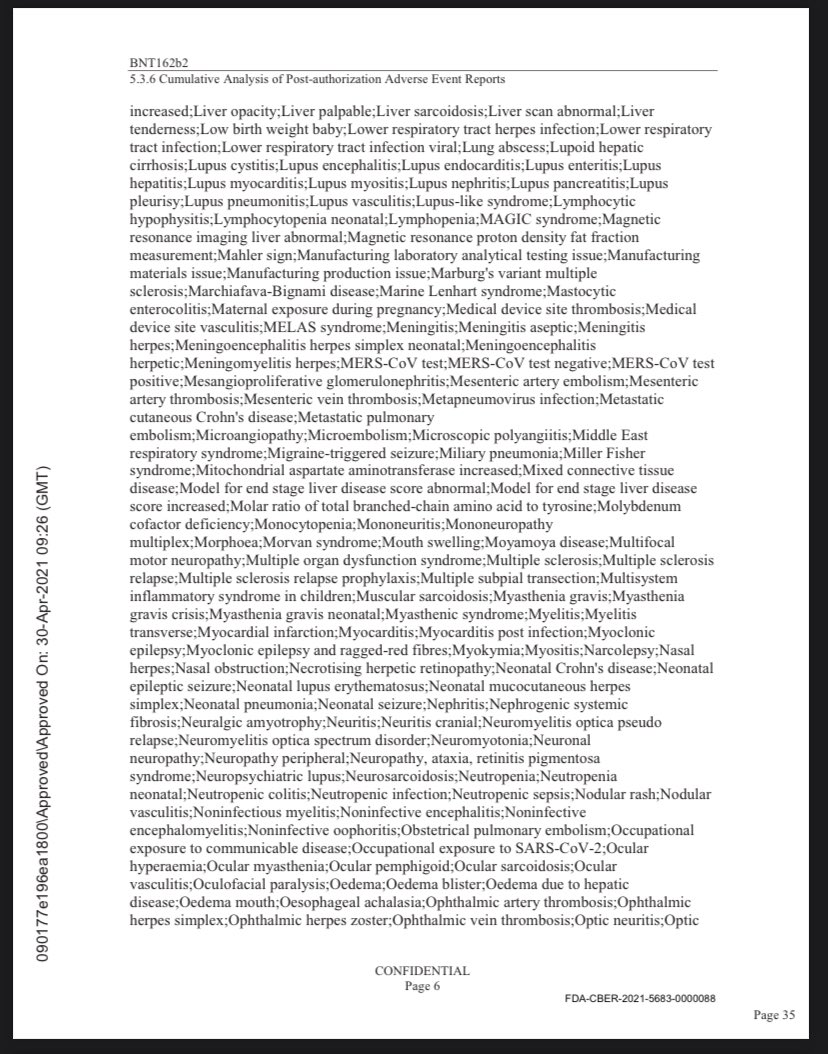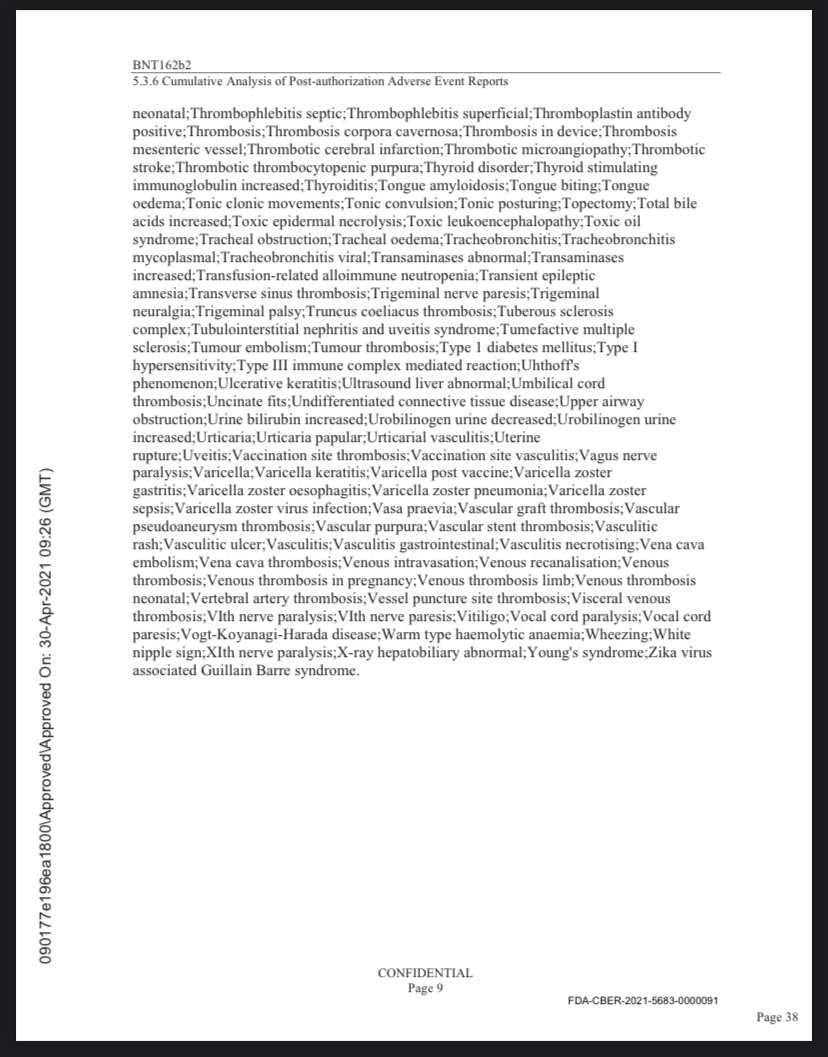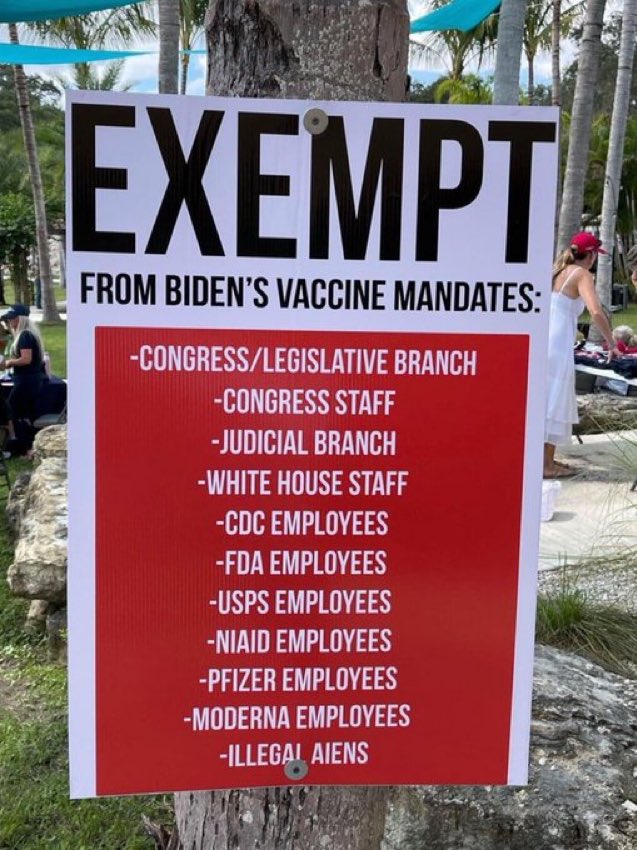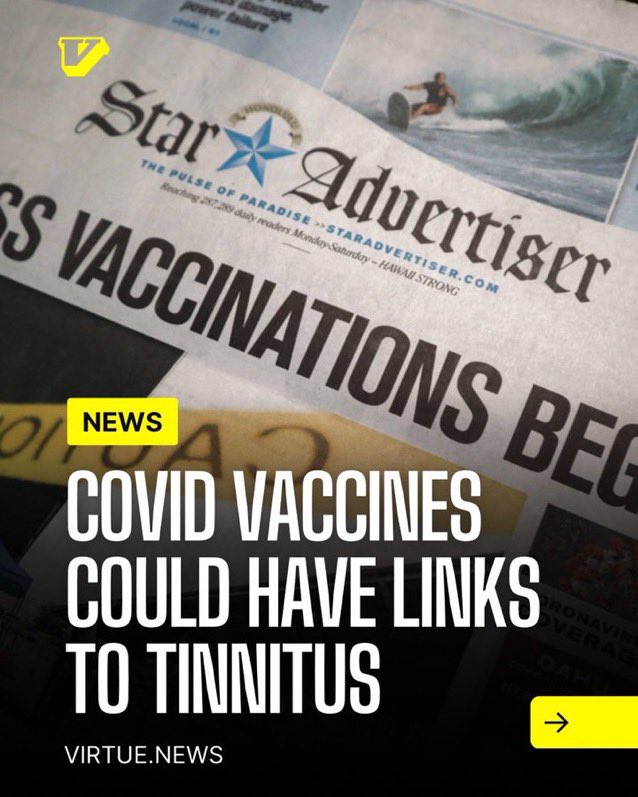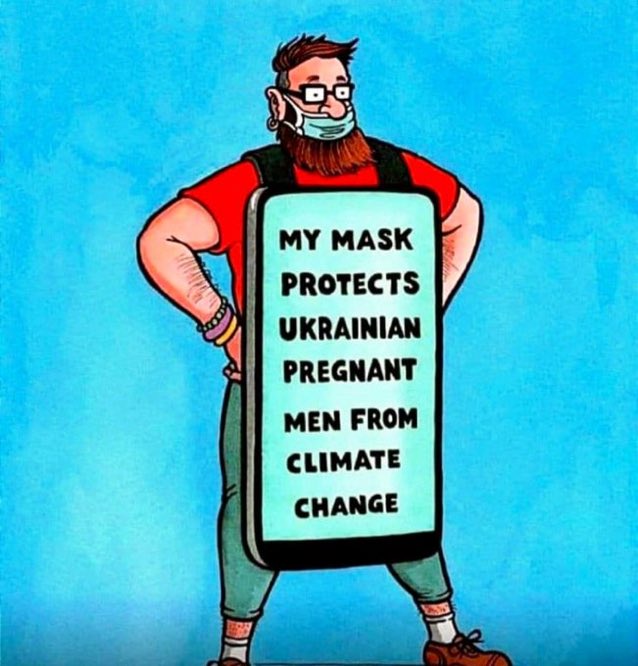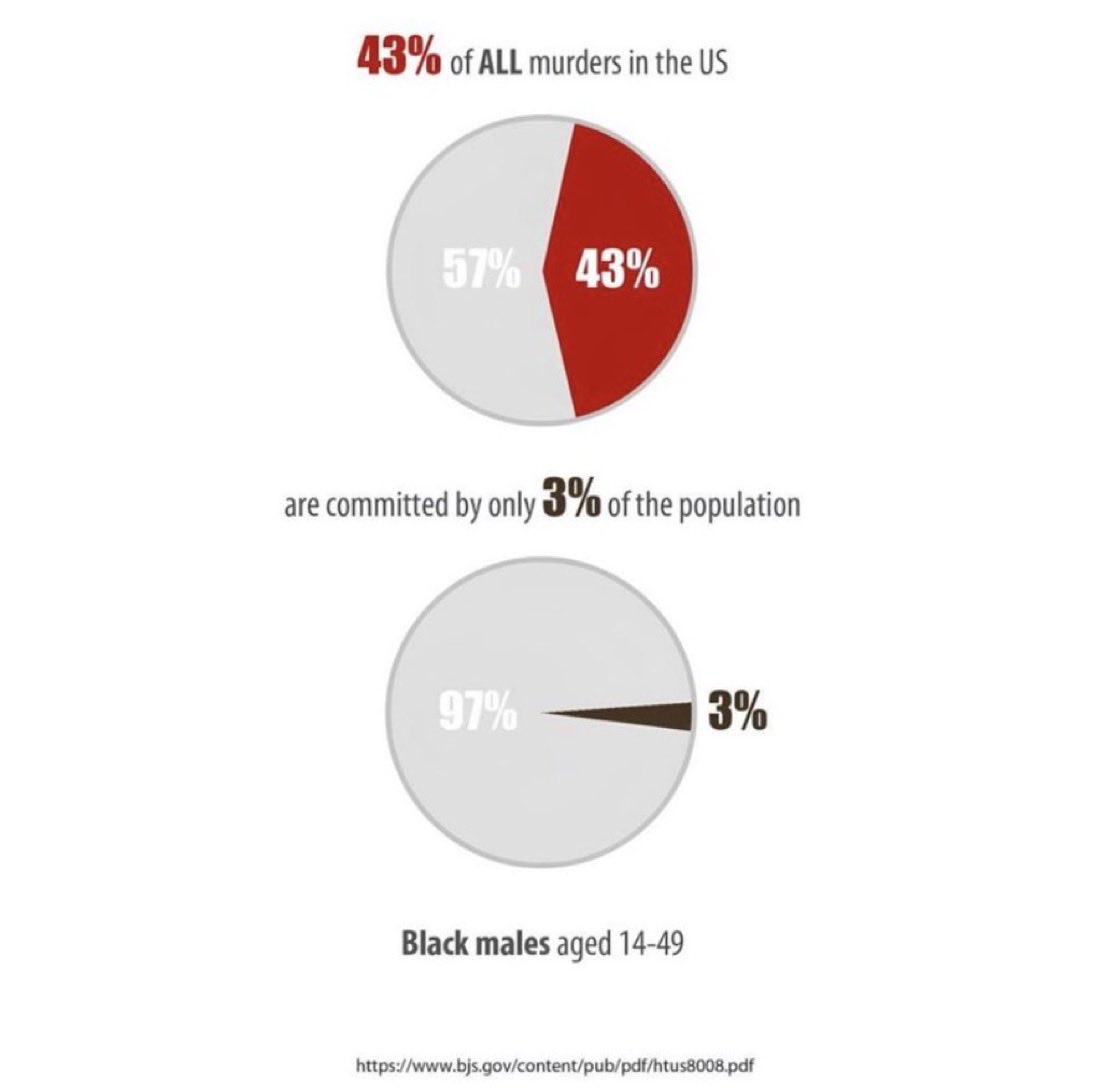#Pfizer lied to people all along. They documented 1290 distinct adverse events during clinical trials of the COVID vaccines.
#VaccineSideEffects were real and they were massive.
A thread for your awareness👇
#VaccineSideEffects were real and they were massive.
A thread for your awareness👇

#ExcessDeaths in Japan 🇯🇵
#ExcessDeaths in Germany 🇩🇪
Singapore 🇸🇬 perinatal mortality skyrockets in 2022 (perinatal - late fetal deaths at 28 completed weeks of gestation or more and neonatal - early deaths under age 7 days)
Take a wild guess why
Take a wild guess why
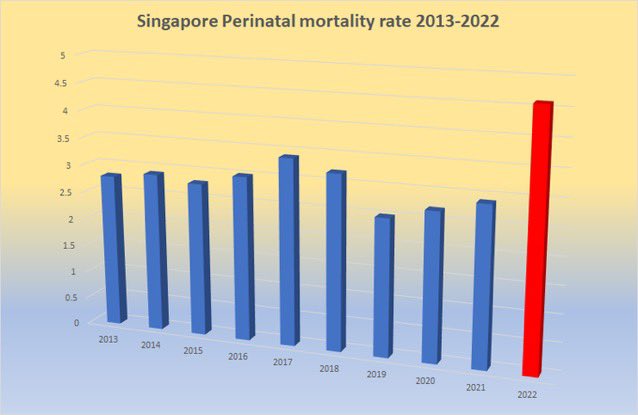
Imagine if someone is throwing away millions of dollars of his career down the drain to speak out the truth.
Don’t take those vaccines with spike proteins in them, they’re deadly.
Don’t take those vaccines with spike proteins in them, they’re deadly.

What happens when 300 kids take the Covid vaccine and are then studied by scientists NOT funded by Pfizer?
A Shocking number of them (30%) display Serious heart issues. That’s an insanely high percentage with adverse health effects. #VaccineSideEffects
A Shocking number of them (30%) display Serious heart issues. That’s an insanely high percentage with adverse health effects. #VaccineSideEffects

Prescription drugs, vaccines and your #BigPharma is a mafia… why 👇
Vaccine Injury Act of 1986: Manufacturers Cannot Be Sued for Injury or Death caused by a vaccine.
Attorney @AaronSiriSG: "If a product is safe, why do you need to give the manufacturer essentially blanket immunity to liability for the injuries that that product causes?"
Aaron Siri is an attorney with a focus on civil rights, class actions, and commercial litigation.
Vaccine Injury Act of 1986: Manufacturers Cannot Be Sued for Injury or Death caused by a vaccine.
Attorney @AaronSiriSG: "If a product is safe, why do you need to give the manufacturer essentially blanket immunity to liability for the injuries that that product causes?"
Aaron Siri is an attorney with a focus on civil rights, class actions, and commercial litigation.
https://twitter.com/VigilantFox/status/1634988063129493504/video/1
You don’t get to give immunity to #BigPharma and you don’t get to sue them for damages on vaccines that don’t work, vaccine side effects or anything else for that matter.
It’s free money for state backed #BigPharma from you all through fear.
It’s free money for state backed #BigPharma from you all through fear.
https://twitter.com/TexasLindsay_/status/1635020497078591490
You don’t get to give immunity to #BigPharma and you don’t get to sue them for damages on vaccines that don’t work, vaccine side effects or anything else for that matter.
It’s free money for state backed #BigPharma from you all through fear.
It’s free money for state backed #BigPharma from you all through fear.
https://twitter.com/texaslindsay_/status/1634978578801774594?s=46&t=nNTLKTOdc_jIqNoa29XhBg
They’re monsters for not taking these #VaccineSideEffects seriously. They don’t care if babies die or mothers die.
https://twitter.com/TexasLindsay_/status/1635361674969628673
How do they get away with murder?
They don’t mark even #CardiacArrest or #Myocarditis or #Pericarditis as deadly in their reports… it’s all planned
They don’t mark even #CardiacArrest or #Myocarditis or #Pericarditis as deadly in their reports… it’s all planned

Florida Surgeon General says mRNA vaccines have a "terrible safety profile." They don’t recommend anyone taking these vaccines let alone little kids & pregnant moms.
ARE THE VACCINES REALLY SAFE
https://twitter.com/_____ASLAN/status/1394720227192188929
Pfizer lobbied to destroy 37 million dose stockpiles of #hydroxychloroquin from Australia once they heard about it as their sales will suffer. Pfizer is a money/power hungry monster directly responsible for deaths of millions.
#PfizerLiedPeopleDied
#PfizerLiedPeopleDied
https://twitter.com/SaiKate108/status/1636611104083447809
We are winning folks. People are afraid to get jabbed. 450 million doses of vaccines were destroyed. 3 countries want to get out of vaccine contracts.
https://twitter.com/VigilantFox/status/1637902229385494533
#Vaccines are like a mystery box full of #VaccineSideEffects chocolates, you never know what you might get👇 

Remind me again, why are we taking these vaccines again 🤷♂️
https://twitter.com/VigilantFox/status/1639701146141958148
Germany 🇩🇪 sees a massive rise in possible #VaccineSideEffects
https://twitter.com/VigilantFox/status/1640114554657964033
Why Pfizer never came to India 🇮🇳
#BloodVesselInflammation
#Vasculitis was a known side effect from the Pfizer vaccine, yet they pushed them onto millions of people.


#Vasculitis was a known side effect from the Pfizer vaccine, yet they pushed them onto millions of people.


Another sad case of #VaccineDeaths
Doug Brignole book was awesome 👏
Doug Brignole book was awesome 👏
https://twitter.com/stkirsch/status/1655005881900359680
Pfizer has habitually engaged in illegal and corrupt marketing practices, bribed physicians, bribed health departments, bribed politicians to carry out cheap & illegal drug trials
A must read🧵 on all kinds of malpractices that Pfizer is involved in & paid billions in fines👇
A must read🧵 on all kinds of malpractices that Pfizer is involved in & paid billions in fines👇
https://twitter.com/KanekoaTheGreat/status/1610375042940153856
Jamie Foxx left paralyzed and blind in the hospital after taking his vaccine.
Jamie was reluctant to taking the vaccine, but then the studio forced him to be vaccinated or sign off the film. He got jabbed, suffering the consequences now…
Jamie was reluctant to taking the vaccine, but then the studio forced him to be vaccinated or sign off the film. He got jabbed, suffering the consequences now…

Despite finding 1,600,000 adverse events covering nearly every organ system, CDC & FDA still claim Pfizer vaccines are #SafeAndEffective and are still being administered to pregnant women, children & infants 

The sort of PM that is sold out to #BigPharma and wants to hide the fact that they mandated untested garbage as vaccines for people 

Medical Experts Warn COVID Vaccines May Be Triggering ‘Turbo Cancers’
The term “turbo cancer” is commonly attributed to aggressive cancers following COVID vaccination. “These cases often present in a late stage ... and quickly turn fatal.”
The term “turbo cancer” is commonly attributed to aggressive cancers following COVID vaccination. “These cases often present in a late stage ... and quickly turn fatal.”

COVID vaccines are 24x more dangerous than other vaccines
https://twitter.com/VigilantFox/status/1686399995354693633
German Government confirms, there's no data that can back up the claims that COVID-19 vaccinated people have better health outcomes!! 

These Singapore statistics speak volumes
96% of eligible population injected by end of 2021.
Record increase in deaths in 2022
Record decline in births in 2022
96% of eligible population injected by end of 2021.
Record increase in deaths in 2022
Record decline in births in 2022

Pfizer knew about these deadly side effects and still pushed for vaccine mandates for more profits
COVID vaccines may have seriously damaged the hearts of 30% of Americans… how many around the world, God knows 🤷♂️ 

AFTER ALL THE DAMAGE THEY DID…
FDA explicitly recognizes that doctors do have the authority to prescribe ivermectin to treat COVID,’ Ashley Cheung Honold, a Department of Justice lawyer representing the FDA, said during oral arguments on Aug. 8 in the U.S. Court of Appeals for the 5th Circuit
FDA explicitly recognizes that doctors do have the authority to prescribe ivermectin to treat COVID,’ Ashley Cheung Honold, a Department of Justice lawyer representing the FDA, said during oral arguments on Aug. 8 in the U.S. Court of Appeals for the 5th Circuit

This is what they do to your kids with their vaccines full of side effects
Dr. Andrew Wakefield was an ethical doctor who was silenced by the #BigPharma for their greed and profits
https://twitter.com/robinmonotti/status/1690626933472563200
They mandate vaccines for your jobs, getting medical assistance, travel, insurance and everything else
But when the massive side effects are out in the public, this is how they save themselves
But when the massive side effects are out in the public, this is how they save themselves

Remember how they tried to coerce you into getting those vaccinations
Disgusting 🤮
Disgusting 🤮
30,000 excess deaths just in the UK as of now in 2023. Conveniently y’all can blame it on #ClimateChange #ClimateCrisis 

Diagnosis bring in money
Hospitals love fresh money
Older women are the easiest target
Hospitals target older women for money
Hospitals love fresh money
Older women are the easiest target
Hospitals target older women for money
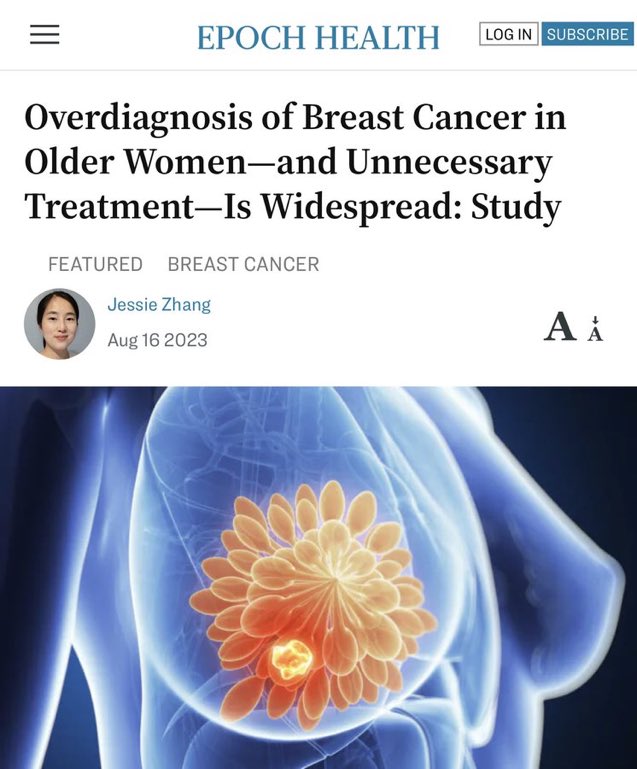
Pfizer profits are down 98%
Moderna profits are down 93%
What do they do…
They scare you with a brand new version of the virus to push sales
Moderna profits are down 93%
What do they do…
They scare you with a brand new version of the virus to push sales

The Philippines government committee has voted to launch an investigation into over 327,000 unexplained excess deaths between 2021 and 2022.
Pfizer and Moderna are screwed
Pfizer and Moderna are screwed
• • •
Missing some Tweet in this thread? You can try to
force a refresh


